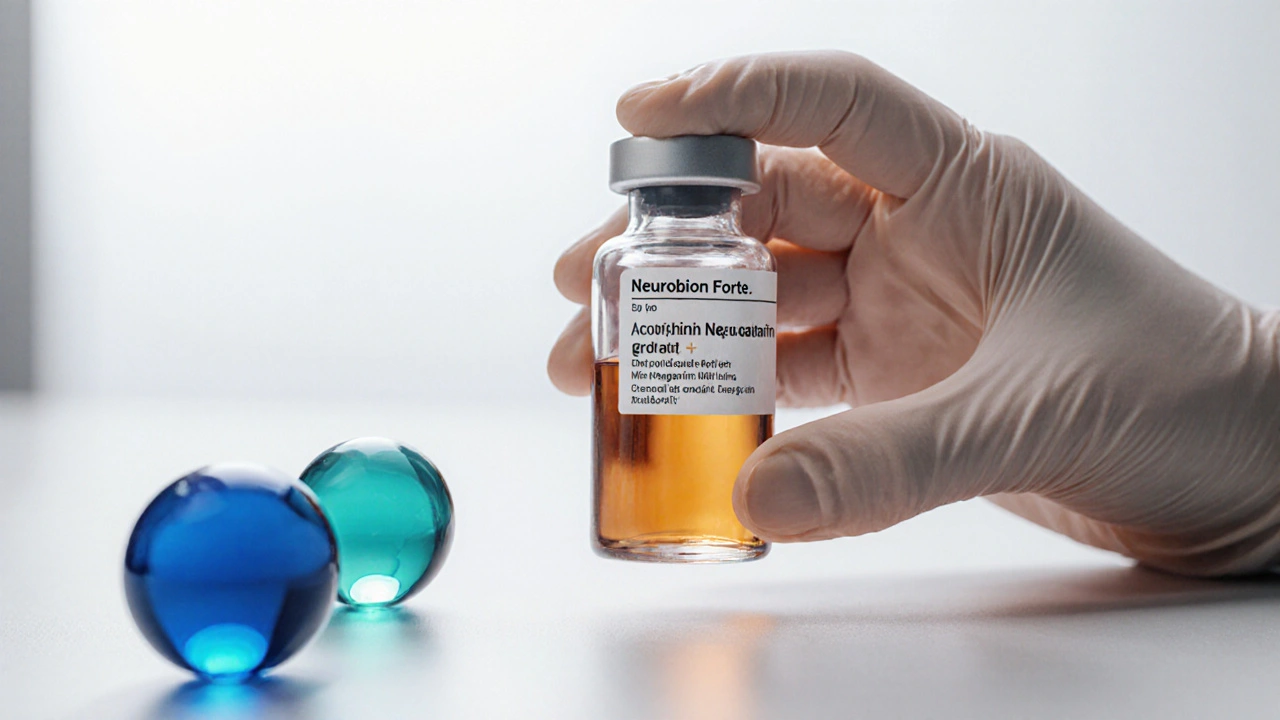Vitamin B Injection Alternatives: Safe, Effective Options
When looking at vitamin B injection alternatives, non‑injectable ways to raise B‑vitamin levels for people who can’t or don’t want shots. Also known as B12 shot alternatives, they let you avoid needles while still correcting a deficiency. Vitamin B injection alternatives encompass several delivery methods, each with its own absorption profile and convenience factor.
Common non‑injectable options
The first and most widely used alternative is oral B12 supplements, tablet or capsule forms that deliver cyanocobalamin or methylcobalamin through the digestive tract. They’re cheap, easy to store, and work well for most people with mild to moderate deficiency. Next up is sublingual B12, lozenges or drops placed under the tongue for direct absorption into the bloodstream. This route bypasses the stomach, which can be a plus for those with gastrointestinal issues. Finally, nasal B12 spray, a mist applied inside the nostrils that offers rapid uptake via the nasal mucosa, is gaining popularity for its speed and needle‑free experience.
Choosing the right alternative requires understanding a few key attributes. The absorption rate varies: oral tablets rely on gut health, sublingual drops benefit from a thin mucosal membrane, and nasal sprays provide the fastest entry. Dosage flexibility also matters; tablets often come in 500‑1000 µg strengths, while sprays are usually 1000 µg per puff. Cost can differ dramatically—bulk oral capsules are the cheapest, whereas nasal devices carry a higher upfront price but may reduce long‑term clinic visits.
Healthcare providers often recommend sublingual B12 when injections aren’t feasible, because it sidesteps the stomach and reduces the risk of malabsorption. In many cases, nasal sprays are chosen for patients who need quick symptom relief, such as fatigue or neurological tingling, and want to avoid the hassle of daily pills. Studies show that when absorption is efficient, all three alternatives can raise serum B12 levels to the same therapeutic range as injections, proving that vitamin B injection alternatives are clinically effective for most deficiencies.
Before you switch, make sure you’ve had your B12 levels checked. A simple blood test tells you whether you’re truly deficient or just borderline. Talk to your doctor about any underlying conditions—like pernicious anemia or gastrointestinal disorders—that might affect which route works best. Look for products that state the form of B12 (methylcobalamin is often preferred for neurological health) and check expiration dates to ensure potency. If you’re on medication that interferes with B12 absorption, a nasal spray or sublingual form may bypass those interactions.
Now that you understand the main alternatives, you’ll see why the collection below covers a range of practical tips, safety guides, and cost‑saving strategies. Whether you’re curious about oral tablets, sublingual drops, or nasal sprays, the articles ahead will help you pick the right solution, avoid common pitfalls, and keep your B‑vitamin levels where they belong.

